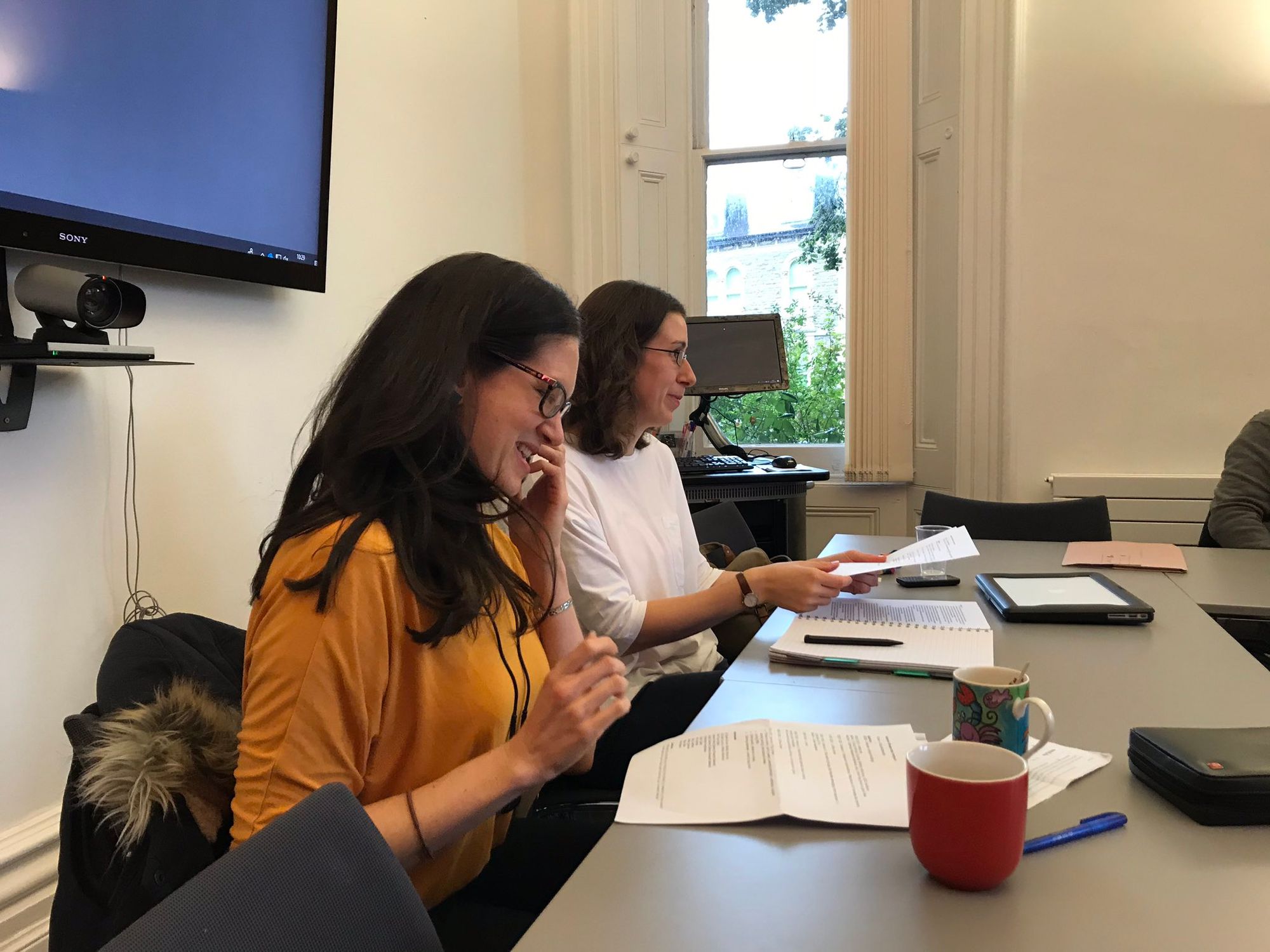University of Bristol, 6 October 2018
By Hannah West and Sophy Gardner
This blogpost was first shared here and picks up from the debate captured by Ben Schrader, Daphne Inbar and Aviad Levy following their panel discussion at EISA 2018 on military veterans in International Relations and Critical Military Studies and discussed on this blog post.
The Defence Research Network held a workshop in Bristol on 6 October 2018 to bring together veterans to explore what it means to traverse the military-academic divide. We considered questions including, whether veterans’ military experience and identity shape their research agendas, methods and interpretative frameworks; what unique opportunities and challenges veteran researchers whilst conducting research on defence; and what it means to be reflexive about their positionality within their research. The workshop was funded by Volkswagen Foundation as part of the Military Afterlives project.

Hannah shares her reflections:
‘Entering a room full of veteran-researchers is at once comforting – to find others who are going through the same transition from the military to academia – but at the same time there is an unspoken dynamic going on that I found fascinating. It happens in everyday life of course, we make judgements, some conscious, some unconscious, when we meet and interact with others, but with veterans it feels there are a set of questions framing how we understand each other. And as I stood next to my civilian supervisor, Sarah Bulmer, who was chairing the workshop, I was struck with how the subtleties of this interaction might appear or be invisible to an outsider. How long had they served for? Did they serve as an officer or NCO? Were they a regular or reservist? What was their regiment/trade/branch? Did they deploy? And these questions are not necessarily answered in a brief resume on meeting but in the subtle and silent assessment of how someone dresses and presents themselves, and also what they share about their military career. So, whilst I can’t speak for the other participants this was definitely somewhere in my mind when I met this group. I also noticed that Sarah was left out of these discussions, and it was strange to see my supervisor needing my guidance to interact with this group. And this was just the opening of the workshop. But it got me ready to talk about what the ‘shared experiences’ of being a veteran are.’
It was a fascinating and useful day connecting with fellow veteran (and in fact serving and reservist) researchers, hearing about their research and identifying common experiences. The points below capture some of the observations emerging from our discussions:
- Experiential knowledge. We talked about what our military experience brought to our research, and what this allowed us to see, say and understand when compared to a civilian researcher. We recognised how we bring a particular understanding both to the interpretation of texts and in interactions with military research subjects and institutions but we were challenged to think about our blindspots too. We acknowledged the importance of the veteran experience to academia but shared our nervousness sometimes in sharing personal experiences and overcoming traditional cultural stereotypes about what it is to be a veteran, especially with colleagues critical of military power and militarisation.
- Pride and criticism. Reflecting on their military service, participants had varied responses to their own past roles but we agreed there was potentially a tension between pride in our service and being critical of the military. We explored the idea of critical practice and needing time to reflect on our service to be able to understand what we had normalized or been desensitized to through serving. This linked to the idea of becoming more politically active following military service, catalyzed by reflections on our military experiences. However, another perspective reconciled critique and pride because through critiquing the military we support it to reform and improve.
- Intersections of organizational culture. Military culture and language is second nature to us but we discussed that academia has its own culture and language too and that our challenge is negotiating the intersections of these two cultures. Perhaps the challenge for the veteran researcher is navigating the journey between the two and being able to accommodate and draw on these two cultures in different contexts.
- Societal understanding. This debate also led us to reflect on being part of a diminishing band of veterans with fewer families knowing someone with military service and how this impacts on how we are understood in society, and, in particular, by our civilian academic colleagues. We remembered how there had been a time when most scholars had done military service.
- Instrumental advantage. We did not dwell on, but did acknowledge, the instrumental advantage of military service in military research in terms of access and credibility but were challenged to think about the methodological implications of our blindspots, for example what we might assume because of our familiarity with military norms.
- Blurred lines. For some, the line between the military and academia is not distinct – they perhaps started doing research, in some form, whilst still serving or in fact are still reservists or regulars now, only adding to the blurry nature of this transition for some people. We considered whether the distinction between the two spheres was as distinct as it seemed.
We are intending to hold a follow on workshop in Autumn 2019 on the subject of ‘The voice of the veteran as researcher’ to present papers for discussion and build towards publication. Our aim would be to bring together veterans who are also researchers and would be interested in contributing to this debate.
At this time when the notion of the expert is under fire in the popular press, what is the value of military experience in scholarship? We have seen the emergence of soldier-scholars and social media has amplified military attempts to engage with critical thinking e.g. Wavell room, BRAIN and Dragon portal. With this increased visibility, there is now an opportunity to encourage a more diverse commentary on defence and specifically reflect on the contribution of the ex-military-scholar.
We would be interested to hear from any veteran-researchers who would like to engage with the following themes:
- What is the value of war experience as the basis of scholarship?
- What do veterans’ voices add to critical commentary on war and the military that other voices might miss?
- How does the scholarship of veterans differ methodologically?
- How does engaging with academia affect veteran’s reflections on the military and their service?
- What are the cultural barriers to veterans participating in the academic community?
- What are the blindspots for veterans researching the military/defence?
- How do veterans engage with politics and critical practice following their transition from service?
A call for papers will follow. In the meantime, expressions of interest would be welcome to [email protected].
